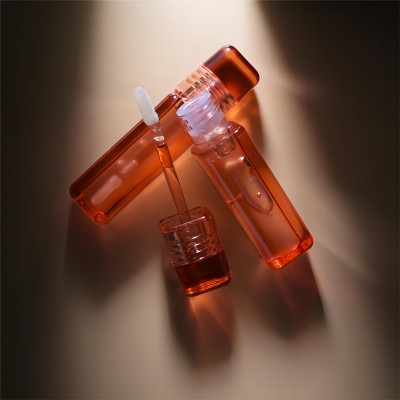From Concept to Creation: Finding the Perfect Cosmetic Solutions Private Label Partner
The beauty industry is experiencing growth as independent brands flourish and the interest, in private-label cosmetics surges like never before for entrepreneurs and established companies. Private-label cosmetics provide a chance for individuals and businesses to establish their brand image and product ranges without the challenges of starting a manufacturing facility from the ground up. However delving into the realm of private-label cosmetics can be intimidating, for those, on the scene.his manual aims to offer you an overview of label cosmetics and assist you in locating the ideal collaborator to bring your beauty concept into reality.
Understanding Private Label Cosmetics
What are Private Label Cosmetics?
Custom cosmetics are items produced by a company (such, as an OEM makeup manufacturer). They are subsequently marketed under your brand name of choice. You hold authority over the formulation of the product and its packaging design and branding. This enables you to develop a product range that caters, to your intended audience.
Benefits of Private Label Cosmetics
Building a brand involves creating an identity and standing out in a market while keeping costs in check with lower initial investments compared to establishing your manufacturing plant for more flexibility and control, over product formulations and branding that cater to specific needs and preferences leading to quicker product launches by utilizing existing manufacturing resources and potentially higher profits margins than selling other brands’ products.
Key Considerations When Choosing a Private Label Partner
Choosing the private label collaborator is essential, for the triumph of your beauty products line business venture. Here are a few vital factors to remember as you explore your options;
Manufacturing Capabilities
- Production Capacity
Assess the manufacturer’s production capacity to ensure they can meet your order volume requirements, both current and future. Can they handle small batch orders as you’re starting, and can they scale up production as your brand grows?
- Product Range
Review the manufacturer’s product portfolio to determine if they have experience producing the types of cosmetics you envision for your brand. Do they specialize in certain categories, such as skincare, makeup, or haircare?
- Quality Control and Certifications
Thoroughly investigate the manufacturer’s quality control processes and certifications. Do they adhere to Good Manufacturing Practices (GMP)? Are they ISO 22716 certified, demonstrating their commitment to cosmetic safety standards? These certifications are important for ensuring the safety and quality of your products.
Formulation Expertise
- Stock Formulas
Inquire about the availability of stock formulas that you can use as a starting point for your product line. Stock formulas can save time and resources during the development process.
- Custom Formulation Development
Determine if the manufacturer offers custom formulation development services. If you have a unique product idea, you’ll need a partner who can create a formula from scratch to your exact specifications.
Packaging and Design Services
- Explore the range of packaging options available, including bottles, jars, tubes, compacts, and palettes. Consider the sustainability of the packaging materials.
Branding and Design Support
- Inquire about branding and design support. Can the manufacturer help you create custom labels, logos, and packaging designs that align with your brand vision?
Minimum Order Quantities (MOQs)
- Clarify the minimum order quantities (MOQs) for each product. MOQs can vary significantly between manufacturers and product types.
Pricing and Payment Terms
- Obtain detailed pricing information, including manufacturing costs, packaging costs, and any additional fees. Understand the payment terms, such as deposit requirements and payment schedules.
Communication and Customer Service
- Evaluate the manufacturer’s communication responsiveness and overall customer service. A strong and reliable communication channel is essential throughout the entire process, from initial inquiry to product delivery.
Topfeel: A Reliable Cosmetics Supplier for Your Private Label Needs
The reports discuss Topfeel as a company that has been, in the label cosmetics manufacturing business for more than ten years now. They are known for their expertise in offering a range of makeup solutions such as product development and design-making products, with quality assurance and providing stock formulations and packaging services among others.
Manufacturing Expertise
Topfeel boasts a wealth of experience, in manufacturing within the cosmetics sector. Emphasizes their robust OEM cosmetics manufacturing facilities equipped with state-of-the-art machinery and a proficient workforce to guarantee order processing and delivery services across a diverse range of cosmetic products such as eyeshadows, lipstick, and foundations, in bulk quantities.
Customization and Flexibility
Topfeel puts a focus on tailoring its products to suit each client’s needs and preferences efficiently. They provide a range of made and personalized formulas to cater to your preferences. Giving clients the option to select from their standard selections or create their own distinctive products.
Commitment to Quality
Topfeel shows its dedication to excellence through the certifications it holds. Its, house resources capabilities,, are evident in its adherence to standards like ISO 22716 and GMPC well as its accreditation by BSCI and FDA/EU for its laboratory facilities Their Technology R&D Center staffed with skilled formulation engineers showcases its commitment to innovative utilizes PLC intelligent batching system to uphold uniform product quality These elements collectively indicate that Topfeel places utmost importance, on ensuring the safety and quality of their offerings..S.tainable Packaging Solutions
Topfeel prioritizes eco-friendly packaging options, in response to the beauty industry footprint concerns by reducing reliance on the use of plastics derived from petroleum and encouraging the adoption of recycled plastics and biodegradable materials, in product packaging designs.
Navigating the Private Label Process
The process of creating your brand includes important stages. Starting from the idea generation phase to the ultimate introduction of your product, to the market scene.
Concept Development
Define your target market and brand positioning. What are the unique needs and preferences of your ideal customer? What message do you want your brand to convey?
Conduct thorough market research to identify trends, gaps, and opportunities. What products are in demand? What are your competitors offering?
Develop a clear product concept, including the desired product type, benefits, and key ingredients.
Formula Selection
Work closely with your private label partner to select the right formula for your product.
Choose from existing stock formulas or opt for custom formulation development.
Consider factors like skin type, desired finish, and key ingredients. For example, if you are targeting customers with oily skin, you might want to look for oil-control formulas.
Packaging Design
Develop packaging that aligns with your brand identity and appeals to your target market.
Consider the material, shape, size, and color of the packaging.
Create eye-catching labels and logos that communicate your brand message.
Production and Manufacturing
Once the formula and packaging are finalized, the production process begins.
Your private label partner will handle all aspects of manufacturing, including ingredient sourcing, mixing, filling, and packaging.
They will ensure that the production process meets all quality and safety standards.
Quality Assurance Testing
Rigorous quality assurance testing is conducted throughout the production process to ensure the safety, stability, and efficacy of the final product.
Tests may include microbiological testing, stability testing, and compatibility testing.
Labeling and Regulatory Compliance
Ensure your product labels comply with all relevant regulations, including ingredient listing, warnings, and net weight.
Your private label partner can guide you through the labeling requirements specific to your target market.
Shipping and Logistics
Determine the shipping and logistics arrangements with your private label partner.
Discuss shipping costs, delivery timelines, and any necessary documentation for import/export.
Conclusion: Bringing Your Beauty Vision to Life with the Right Private Label Partner
Starting your cosmetics line under your brand is an exhilarating venture, with its own set of highs and lows to navigate through successfully. By weighing your choices and grasping the tasks at hand while teaming up with a reliable and seasoned manufacturer such as Topfeel; you can effectively realize your beauty dreams and establish a brand that truly connects with your desired customer base. Keep in mind that thorough research undertaken along, with communication practices and a solid partnership form the bedrock of a flourishing private-label cosmetics enterprise.






